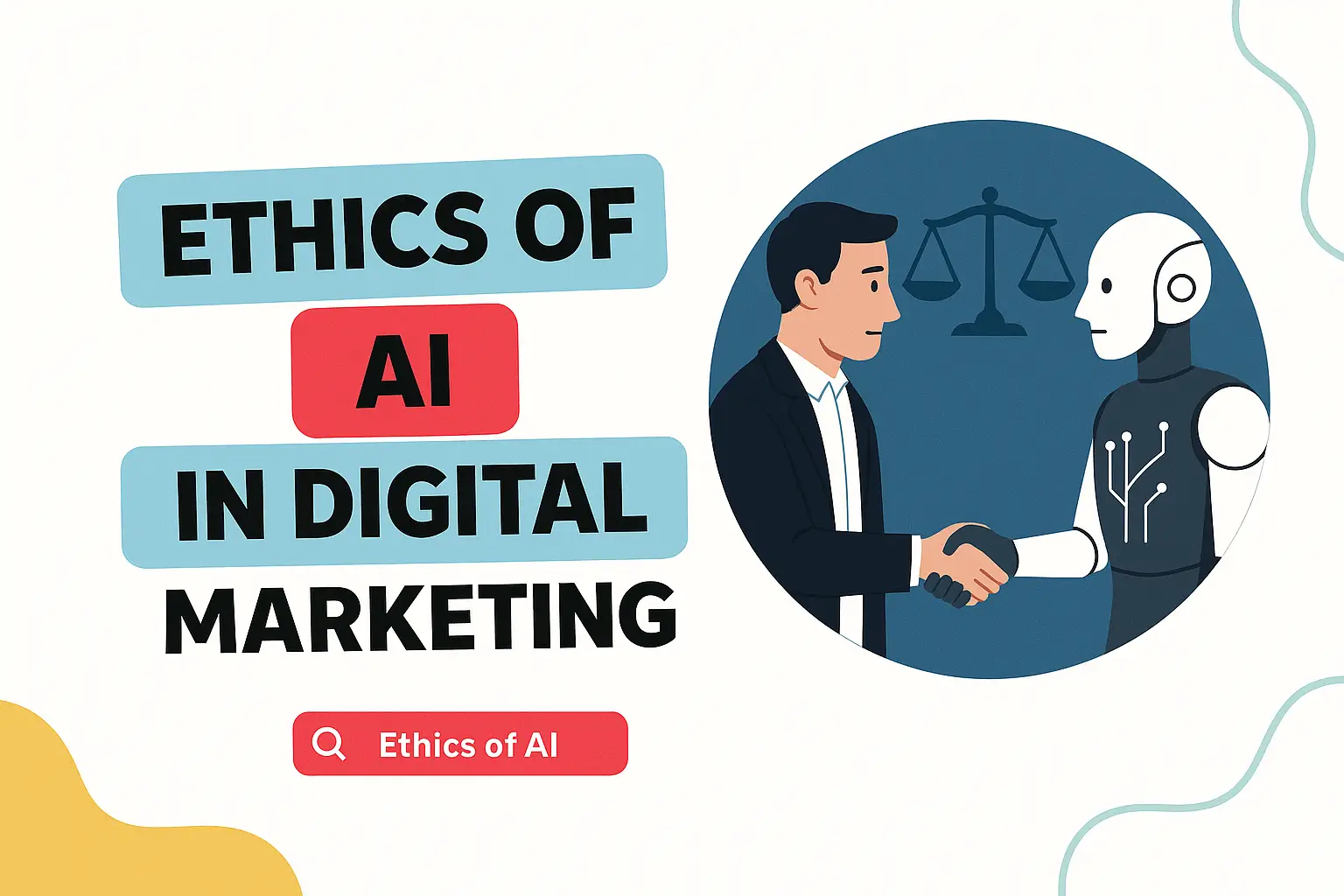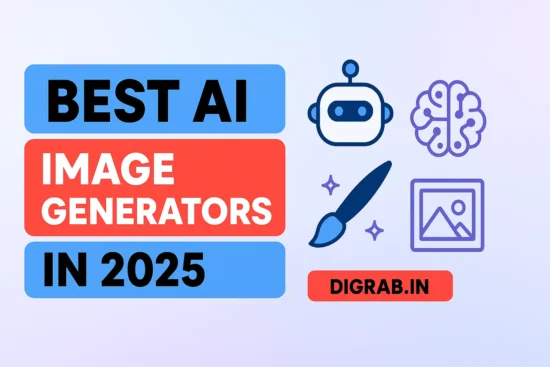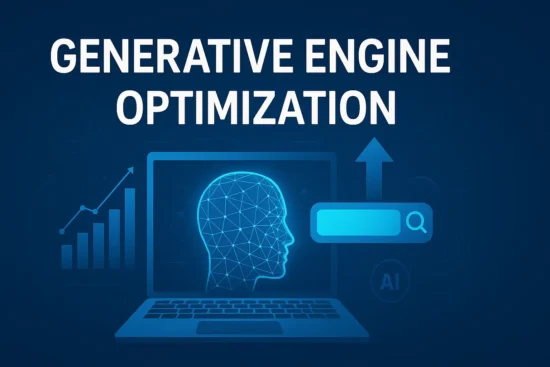
In the sphere of digital marketing, Artificial Intelligence (AI) has sparked a major shift. It empowers marketers to achieve more with less effort—automating content, segmenting audiences, supporting chatbots, and forecasting analytics. But as we embrace this powerful technology, it’s equally important to examine the Ethics of AI—specifically how we collect data, use it responsibly, and manage these technologies with integrity.
If you are running a business or doing marketing, it is very important to know the AI Ethics. This isn’t only for following laws but also for keeping trust and honesty from your customers’ viewpoint.
Why the Ethics of AI is Crucial in Digital Marketing

AI Ethics is about the rules and morals that direct the proper creation and usage of artificial intelligence. In digital marketing, it involves making sure your AI activities respect people’s privacy, stay away from bias, encourage openness and uphold fairness.
AI should not just drive results – it should do so ethically.
Let’s explore the key ethical challenges and how marketers can adopt AI responsibly.
1. Data Privacy: Respecting User Rights
One of the biggest ethical issues with AI in marketing is data privacy. AI needs data to function—user behavior, preferences, purchase history, and more. But where is that data coming from? And are users aware?
Common Concerns:
- Hidden data tracking through cookies and third-party tools
- Lack of user control over how data is stored and used
Ethical Approach:
- Always request informed consent for data collection
- Clearly outline your data policy
- Store only necessary data and encrypt sensitive information
➡️ Want to boost your website’s trust score? Use our DA PA Checker Tool to assess and strengthen your domain authority as you build ethical strategies.
2. Transparency: Removing the “Black Box”
AI is complex—and for many users, it feels like a black box. They may not know when an AI is interacting with them, generating content, or recommending products.
Common Concerns:
- Customers unsure whether they’re talking to a bot or a real person
- No disclosure when content is AI-generated
Ethical Approach:
- Clearly label AI-generated content
- Disclose when users are interacting with AI tools or chatbots
- Be upfront about how AI influences decision-making
➡️ Creating high-quality content? Stay accurate and human-readable with our Grammar Checker Tool.
3. Bias and Discrimination: Unintended Consequences
AI can only be as fair as the data it learns from. If your dataset is skewed, your algorithm might unintentionally discriminate based on gender, ethnicity, or age.
Common Concerns:
- Biased ad targeting or exclusion of certain demographics
- Reinforcement of stereotypes in content personalization
Ethical Approach:
- Use diverse datasets to train AI models
- Regularly audit AI outcomes for bias
- Include human oversight to monitor automated decisions
The Ethics of AI demand that all users are treated fairly—without hidden discrimination built into your tools.
4. Manipulation vs. Persuasion
AI can be incredibly persuasive. It knows what your customer wants before they do. But there’s a line between helping users and manipulating them.
Common Concerns:
- False urgency (e.g., “Only 1 left!”)
- Preying on fear or FOMO (fear of missing out)
Ethical Approach:
- Avoid “dark patterns” and manipulative CTAs
- Ensure your messaging is honest and value-driven
- Focus on long-term trust, not short-term gains
AI should empower customers to make informed decisions—not pressure them.
5. Job Automation: A Human Cost
AI is automating routine marketing tasks like email scheduling, reporting, and even content writing. But that doesn’t mean humans should be left behind.
Common Concerns:
- Replacing rather than supporting human roles
- Over-reliance on AI tools
Ethical Approach:
- Use AI to support human creativity, not replace it
- Upskill your team in AI tools and strategy
- Keep decision-making in human hands
➡️ Planning a link-building strategy? Try our Domain Extractor Tool to clean URLs and boost SEO accuracy.
6. Environmental Impact: The Hidden Cost of AI
Training and running large AI models can be energy-intensive. Every automated report, campaign, and chatbot response uses server resources.
Ethical Approach:
- Choose AI platforms that prioritize energy efficiency
- Optimize models for relevant tasks only
- Regularly evaluate your tech stack’s environmental footprint
Being sustainable is part of ethical business today—and the Ethics of AI must include green thinking too.
Final Thoughts on the Ethics of AI in Marketing
The Ethics of AI is not just a buzzword—it’s a foundational part of building a responsible, future-ready brand. Customers are more informed and aware than ever. They want to support businesses that prioritize transparency, fairness, and privacy.
By practicing ethical AI use in your marketing, you not only comply with laws—you win consumer trust, loyalty, and long-term brand equity.
Summary of Key Practices:
- Collect and use data transparently
- Minimize and secure customer data
- Avoid manipulative AI tactics
- Monitor for bias in automation
- Disclose AI-generated content
- Use AI to augment human skill—not replace it
At Digrab.in, we help brands grow with integrity. From SEO audits to content strategy and automation tools, we support ethical, effective marketing every step of the way.
Need Help Using AI Ethically in Your Campaigns?
Partner with Digrab.in to build high-converting campaigns that reflect the Ethics of AI. Whether you need better content, clean data, or automation tools—we’re here to help you grow the right way.




Leave a Reply